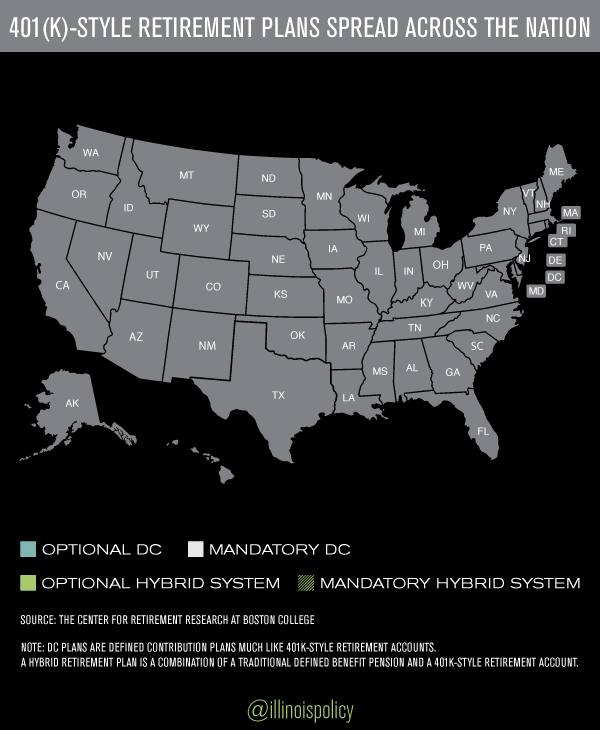Real, reasonable pension reform: 401(k)-style plans for new state workers
The recent Illinois Supreme Court ruling on state retiree health insurance benefits creates a major problem for both the state and local governments. The court ruled that retiree health insurance benefits are protected by the pension protection clause of the Illinois Constitution. The ruling will make it difficult to reform retiree health benefits and to...
The recent Illinois Supreme Court ruling on state retiree health insurance benefits creates a major problem for both the state and local governments. The court ruled that retiree health insurance benefits are protected by the pension protection clause of the Illinois Constitution.
The ruling will make it difficult to reform retiree health benefits and to reduce the debt associated with them. The state has $56 billion in unfunded retiree health insurance debt, and local governments are facing an $11 billion hole.
Many believe the ruling signals that the court will also find the recently passed pension reform bill, Senate Bill 1, unconstitutional. But it’s unwise to draw any definite conclusions about the fate of pension reform until the court rules on the pending lawsuit against that bill.
In the meantime, there is still a major reform Illinois can enact.
Illinois should follow the lead of states across the country that have already implemented real reform by enacting some form of self-managed plan – optional, mandatory, DC or hybrid – for their state workers.
Michigan did so in 1996. And since then, many other states have followed suit.
The Great Recession spurred a great deal of these reforms. Virginia, Tennessee, Georgia, Utah and Rhode Island have all included self-managed plans as part of their new retirement systems since 2008.
In June, Oklahoma signed a bill into law that moves nearly all new state workers into 401(k)-style plans.
The creation of 401(k)-style plans for new workers won’t solve Illinois’ current financial problems, but it will stop the bleeding and avoid conflict with the Illinois Constitution.
It will also create retirement security for new state workers – they’ll own and control their own retirement accounts and won’t have to pay into a system that may collapse and leave them with no money when they retire.
In fact, Illinois already allows one group of workers to participate in self-managed plans. The Illinois State Universities Retirement System has offered an optional 401(k)-style plan to its employees since 1997. More than 17,500 state university workers have opted into the plan since its creation.
Illinois should follow the example of Oklahoma and other reform-minded states to send a positive message to entrepreneurs, businesses and credit-rating agencies that Illinois is finally willing to address its fiscal woes.
Moving to 401(k)-style plans for new state workers is a reform both parties can agree on, no matter how the Supreme Court rules in the SB1 lawsuit. Putting retirements back into the hands of public employees is a responsible reform that can and should happen now.

